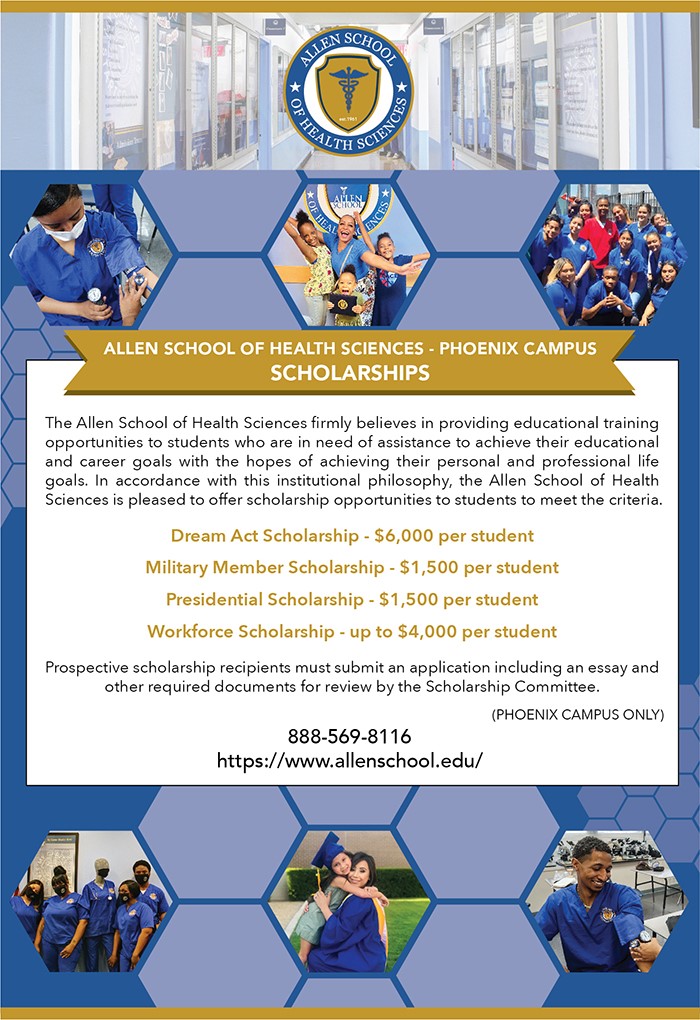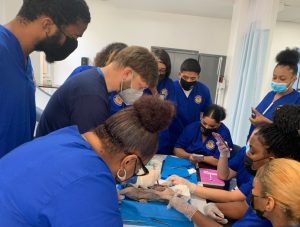If you’re considering pursuing a career in healthcare, medical assisting can allow you to do meaningful work that matters in your community. Medical assistants play an essential role in the day-to-day operations of healthcare facilities and are often among the first and last people a patient sees at their check-ups or doctor’s appointments. If you think the healthcare field could be right for you, here are three reasons why medical assisting is a great place to start.
- Medical assisting is more than just a job. It’s an important healthcare career.
Medical assisting is a rewarding healthcare career that can give you the chance to contribute to patient health and care as you support physicians, nurses, and other medical professionals. Medical assistants often interact with patients and, with an upbeat attitude and positive demeanor, can help to keep patients feeling at ease and smiling during a physician’s visit that might otherwise be stressful. In fact, the Allen School of Health Sciences has been graduating healthcare professions for nearly 60 years.
As a medical assistant, you’ll also be learning a lot about the healthcare field, and, in time, may find opportunities for advancement into roles like medical office or records manager, healthcare administrator, nursing or other related jobs.
- Medical assisting encompasses many duties, keeping you engaged and on your toes.
As a medical assistant, you may perform a diverse mix of administrative and clinical responsibilities. On the administrative side, you might schedule appointments, greet patients, update electronic health records, and handle billing and insurance. Clinical duties can include recording patient information and history, instructing patients on medications, checking vital signs, preparing blood samples, conducting basic lab tests, and assisting the doctor before and during a patient exam. In some states, medical assistants may also give patients injections or medications as instructed by the physician.
Medical assistants can work in a variety of care facilities, with most having time schedules while others have the option to work part-time instead. If you work in a physician’s or practitioner’s office, you’re likely to work a predictable schedule as most clinics and offices open during standard business hours, allowing you to more easily plan and schedule time with family and friends. Other large employers of medical assistants include hospitals and outpatient care centers.
- Employment of medical assistants is growing faster than average.
According to the Bureau of Labor Statistics, medical assistant employment is expected to increase 23% by 2024, much faster than the 7% average across all occupations. Medical assistant employment growth follows the general growth of the healthcare industry and the increasing need for support workers at healthcare facilities. By 2024, the BLS projects that 730,200 medical assistants will be employed in the US, compared to the 591,300 medical assistants counted in 2014. Such an increase in demand can provide workers with increased career stability and the knowledge that, no matter where they are in the country, medical assistants will be needed.
How to Prepare for Your Medical Assisting Career
At the Allen School of Health Sciences, our accelerated medical assisting program can prepare you to begin working as a medical assistant in as little as 9 months. Learn more about the Allen School of Health Sciences medical assisting program available at our 3 locations, Brooklyn, Jamaica Queens N.Y. and our campus in Phoenix Arizona. Contact the Allen School today! We are enrolling now for our spring classes and cannot wait for you to become part of the Allen School family. Visit
www.allenschool.edu to learn more.
 Deciding to pursue a new career while managing family responsibilities can feel overwhelming. Between work, school, and personal commitments, finding time for everything requires planning and support. Fortunately, a career in healthcare offers flexibility, and with the right strategies, balancing family life while completing a medical assistant training program is achievable.
At Allen School, we understand the challenges adult learners face, and we’re committed to providing resources and guidance to help students succeed in both their education and their personal lives.
Deciding to pursue a new career while managing family responsibilities can feel overwhelming. Between work, school, and personal commitments, finding time for everything requires planning and support. Fortunately, a career in healthcare offers flexibility, and with the right strategies, balancing family life while completing a medical assistant training program is achievable.
At Allen School, we understand the challenges adult learners face, and we’re committed to providing resources and guidance to help students succeed in both their education and their personal lives.


 Here is part 3 of our handy guide with the best cities to find a job as a medical assistant. Refer to
Here is part 3 of our handy guide with the best cities to find a job as a medical assistant. Refer to 